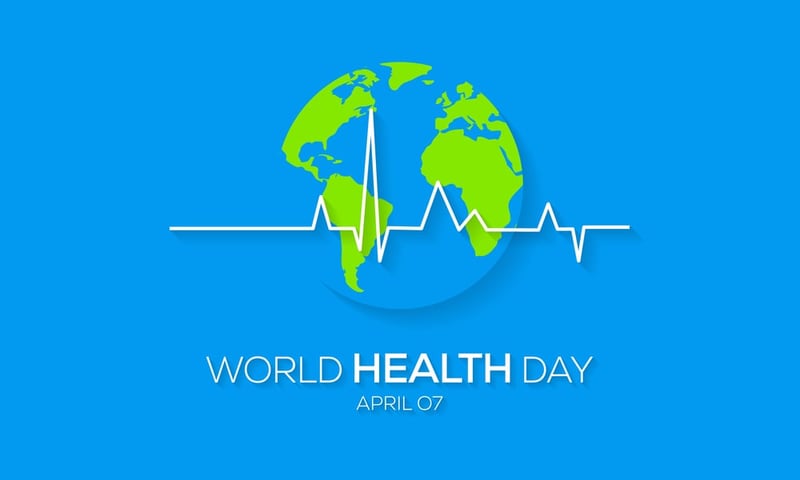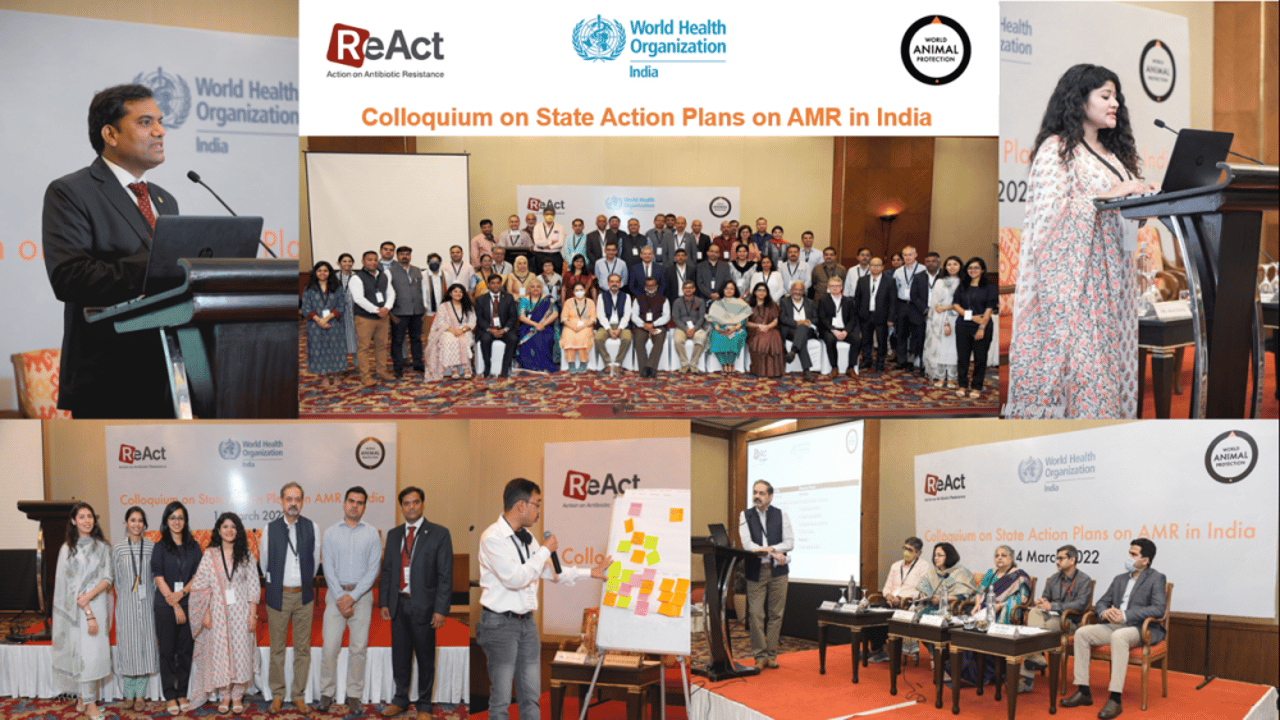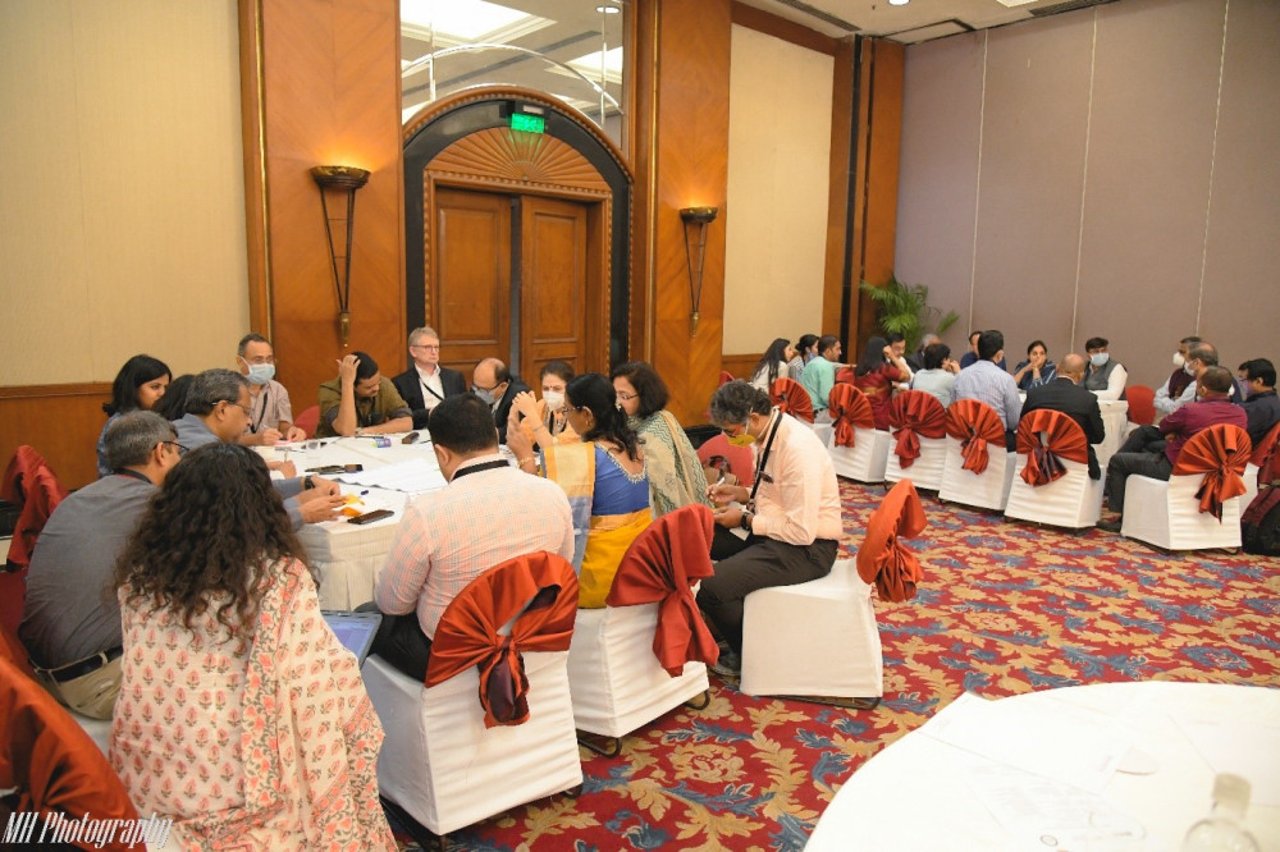
Antimicrobial resistance (AMR) is listed by the World Health Organization (WHO) as one of the top 10 threats to global health, and one of the urgent health challenges for the next decade. Recent studies estimate that 4.95 million deaths a year are associated with AMR and 1.27 million are directly attributable to it.
Colloquium on State Action Plans on AMR
We co-organized "Colloquium on State Action Plans on AMR in India 2022" with World Health Organization's Country Office for India and ReAct Asia Pacific on 14th March. We highlighted how animal farming is the hidden reason behind the AMR crisis and needs to be streamlined with ongoing discussions on AMR in India.
Building capacity for formulating and implementing action plans on AMR
Experts from the countrywide One Health sectors gathered in Delhi. They called on the Government of India to actively engage the state governments to build capacity for formulating and implementing action plans on Antimicrobial Resistance (AMR). Over 50 professionals and policy experts from state governments, WHO, FAO, NCDC, PHFI, ICAR, ICMR, CSE, CDDEP, GARDRP, CUTS International, HSTP, Toxics Link, CDC, etc. gathered to discuss the progress of existing state action plans. We had panel discussions, and group discussions focused on themes- Public health, Animal Farming and Consumer Behaviour.
The meeting called on the Government of India and the State governments to ensure that:
• The AMR agenda receives attention in the post-Covid19 scenario, involving human health, animal welfare, fisheries, environment, and development sectors. Policy-community at various levels of governance, right from local self-government institutions to the national government, need to be sensitized about AMR as a multi-sectoral and multi-dimensional problem.
• State governments get the necessary support and resources to formulate their multi-sectoral action plans on AMR, with the active support of civil society and academia. The action plans need to be costed and prioritized, and there should be accountability at all levels of implementation.
• There is a platform for exchanging best practices and rational strategies between the implementation machinery of various state action plans. The platform should be able to promote translation of evidence and implementation research on tackling drivers of AMR on the ground or limiting its impact in various sectors.
You can help in saving the planet
Conclusion with a Communique
The meeting was concluded with a Communique which was mutually drafted by state representatives and other participants in the room. We emphasized that farm animals' welfare must be improved to stop the overuse/misuse of antibiotics in industrial farming, as it is contributing to the AMR crisis. Also, along with a multi-sectoral approach, community participation and engagement are essential to make the AMR action plans impactful.
Watch this video to know more about AMR
We should actively promote awareness about AMR, in a tailored and strategic manner, with a focus on public health, animal welfare, food safety, and environmental health.

